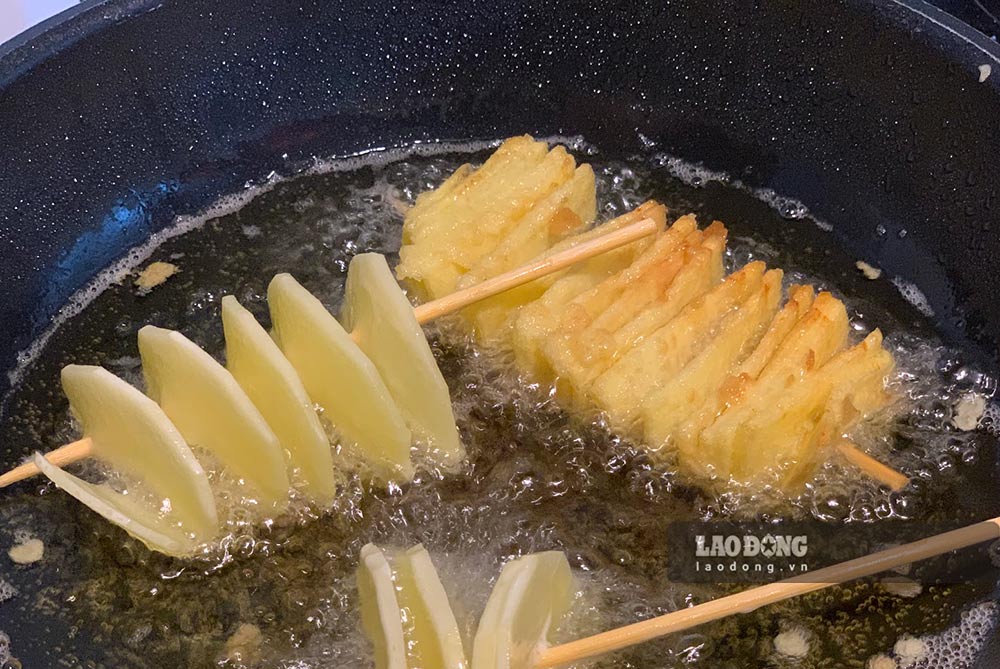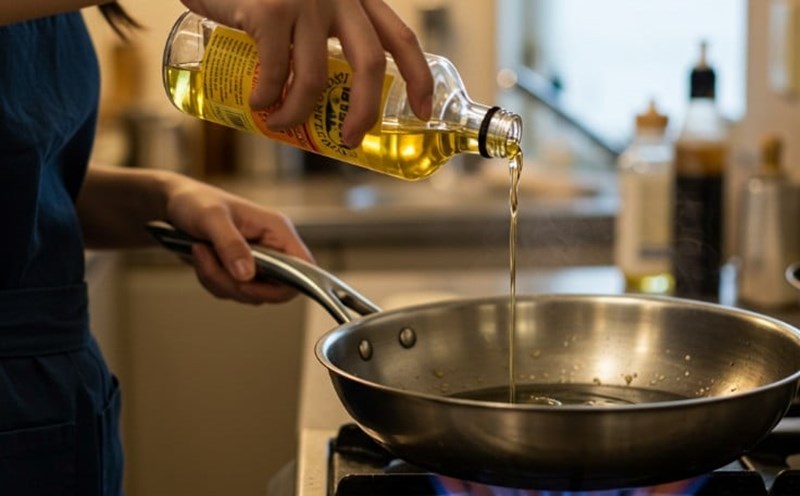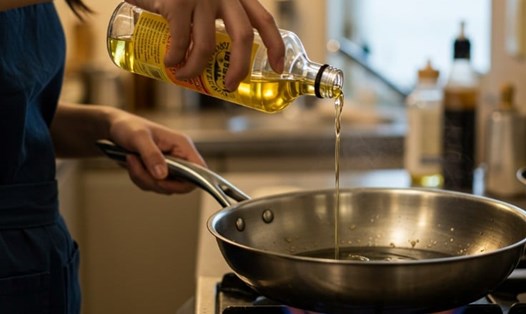On an industrial scale, restaurants can send billions of liters of waste oil per year to be recycled into biofuel. But the story is completely different from waste oil in households.
Dumping leftover cooking oil directly into a sewer or sink can lead to pipe congestion and water pollution, according to Geographic.
As the cooking oil cools, it tends to freeze and stick to the Tube walls, forming thick plaques like a "mound of fat".

Over time, these patches accumulate and can completely block the flow, causing water to flow back into the kitchen or other areas, leading to unsanitary conditions and inconvenience in daily life.
When flowing into the wastewater system, cooking oil forms a layer of mermaid on the water surface, hindering the decomposition process and reducing the amount of oxygen in the water, affecting the ecosystem.
In addition, sucking excess oil with paper and throwing it into trash bins is not a safe solution. If the waste is not treated properly but buried directly, this amount of oil and fat will seep into the soil, negatively affecting the soil environment, groundwater and the microbiome in that area.
Some people pour excess oil into plastic bags, which is not a safe way to handle it. Both grease and plastic bags are hard to decompose. When buried, they combine to cause serious damage to the soil, groundwater and ecosystem. In large landfills, oil is easy to catch fire, easily leading to the risk of spreading fire if it encounters heat.
Some families dumped excess oil on the soil to fertilize the plants. But this was a mistake. This layer of oil will create a film that covers the ground surface, preventing air and water from seeping into the roots. The roots of the plants need oxygen to breathe, if there is a lack of oxygen, the plants are prone to waterlogging, rot and death.
To safely and environmentally friendlyly store leftover cooking oil, collect the leftover cooking oil in a clean bottle.
When the oil cools, pour it into a clean bottle and cover it. Then, go to facilities with clear and safe recycling procedures to deliver waste oil.
This helps used oil to be processed effectively, even recycled into fuel or industrial products, contributing to environmental protection.
Avoid sending or selling leftover cooking oil to collectors of unknown origin. Because these facilities can illegally recycle waste oil, returning it to the food chain and causing serious damage to public health.
Currently, there are many types of "ical preservatives" on the market with different names. These products are often made from environmentally friendly ingredients that can freeze hot oil.
When the temperature drops to about 38°C, the mixture thickens, and can become a soft or thick plate that can be easily scraped out of the pot or pan.
Once the oil has thickened, you can put it directly in a trash can, organic decomposer or even a compost container (in reasonable amounts).
In addition, mustard oil can be reused indoors - such as as as a door sill or as a candle.









